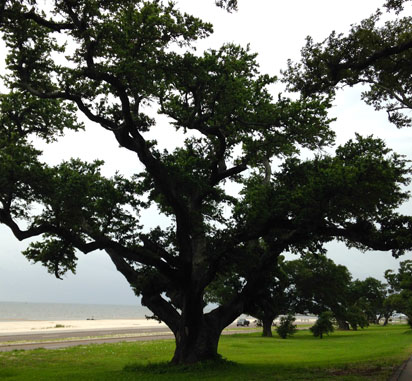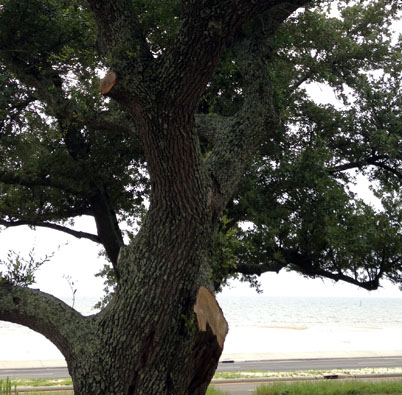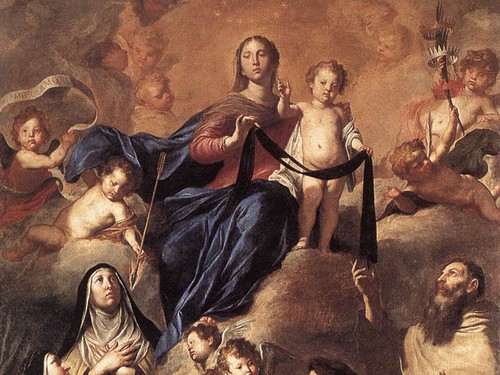 Blessed is the man who trusts in the Lord, whose hope in the Lord. He will be like a tree planted beside the waters that streches its roots to the stream. Jeremiah 17:7-8
Blessed is the man who trusts in the Lord, whose hope in the Lord. He will be like a tree planted beside the waters that streches its roots to the stream. Jeremiah 17:7-8
One of my favorite places in the entire world is Pass Christian, Mississippi, where I spent last week with my extended family and three young grandsons. The “Pass” has been a playground for our family for more than a quarter century, ever since my sister JoJo began dating her now-husband John, who owned a condo on the beach there years ago. JoJo and John own a beach house today that welcomes the next generation of children—a new batch of kids who chase minnows in the shallow salt water, catch hermit crabs along the water’s edge and explore the exposed Gulf bottom as the tide recedes on a summer evening.
One of the things I love best about the place is its majestic oak trees, which line the brilliant white beach that runs adjacent to the Old Highway 90 for miles on end. The oaks create an air of beauty, grandeur and serenity that is part and parcel of the atmosphere of the Coast. I never tire of gazing at them as I walk or ride alongside the beach.
I remember seeing the oaks the day my family and I took our first ride to the Gulf Coast shortly after Hurricane Katrina hit. I will never forget our collective shock as all seven of us rode in stunned silence surveying the damage. Mile upon mile of mansions, beach cottages, businesses, casinos and condominium complexes had simply disappeared from the face of the earth–sucked out into the Gulf of Mexico by the massive storm surge that ferociously slammed its shores. Practically all that remained standing on the barren land were the oak trees, which had somehow survived the storm. They were badly battered and beaten, but they were still standing.
What had held them in place? Deep roots. Much like the roots that held me in place not long after Katrina when a Category 5 storm hit my life. Through Baptism I had been grafted onto Christ, and my roots had been deepened over the years through a personal and intimate relationship with Him. Those roots held me tight in the midst of a colossal personal storm—a storm that would bring to light the need for some divine soul remedies, including the need for my trust in God to be healed.
Walking beside the beach last week brought all of this to mind. Looking at the oaks, I could hardly guess what a beating they took a just few short years ago, other than a telltale sign that repeated itself all along the way: branches that were slashed off after the hurricane in order to save the trees.

As I walked along, it became increasingly obvious that cutting off the bad branches was necessary for the trees to thrive again. I thought about the times when I’ve experienced this reality in my own spiritual life—the times when I’ve received the hard medicine of bad branches being stripped. Especially the broken limb of not trusting that God would take care of me and my family if my worst fears came true—a belief that was amputated when God demonstrated His faithfulness in outrageous ways during a worst case scenario year in my life. That year included burying a brother and his wife to murder-suicide, almost losing a child to serious addiction, and losing my spouse to a massive heart attack—all within twelve short months.
People ask how I survived that difficult time, and the secret is the same as with the oaks. God held me steady through deep roots, even as He cut off branches of unbelief in my own heart. Both things can happen at once, and sometimes both things are necessary for faith to continue to grow and flourish.
“I am the vine, you are the branches,” Jesus said to his disciples. “Whoever remains in me and I in him will bear much fruit, because without me you can do nothing” (John 15:5). The flip side of that truth is that with Him and in Him, we can do everything. Even the things we dread the most, like coming up against personal life hurricanes that threaten to uproot us and pull us asunder.
*****
“The true vine is Christ who gives life and fruitfulness to the branches, that is, to us.” Catechism of the Catholic Church, par. 755.



 “I didn’t know it would be so hard!” That was the second time in a week I’d heard those words from a mother’s lips, this time before morning Mass from a teary-eyed mother asking for prayers for her teenage son. As I saw the searing pain in this beautiful mother’s eyes, I thought of the sword that pierced Our Lady’s heart, and of all of the varied swords that have pierced the hearts of mothers throughout the ages.
“I didn’t know it would be so hard!” That was the second time in a week I’d heard those words from a mother’s lips, this time before morning Mass from a teary-eyed mother asking for prayers for her teenage son. As I saw the searing pain in this beautiful mother’s eyes, I thought of the sword that pierced Our Lady’s heart, and of all of the varied swords that have pierced the hearts of mothers throughout the ages.

